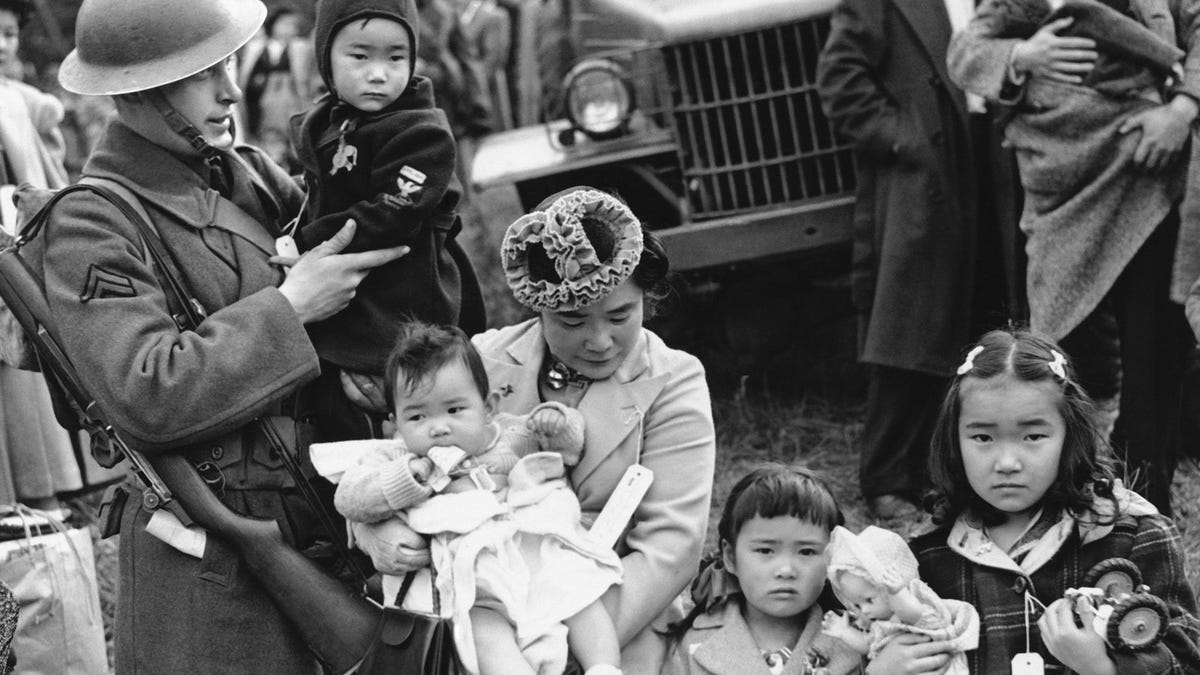
Introduction
The Japanese-American internment, a haunting chapter in American annals, unfurled during the tumultuous era of World War II when both citizens and residents of Japanese descent found themselves unjustly confined within internment camps. Fueled by a maelstrom of fear, wartime hysteria, and xenophobia, this policy cast a long shadow, leaving indelible scars on the lives of those it touched. This essay undertakes a profound exploration of this historical travesty, delving into the contextual backdrop, the rationale behind internment, the squalid realities of camp life, and the enduring reverberations felt within Japanese-American communities and throughout American society.
I. Historical Context
To fully grasp the Japanese-American internment, we must first contextualize the era in which it unfolded. In the wake of the catastrophic assault on Pearl Harbor on December 7, 1941, the United States found itself thrust into the tumultuous throes of World War II. The nation, gripped by trepidation and paranoia, was beset by grave doubts about the loyalty of Japanese-Americans. These suspicions ultimately gave birth to a policy that would forever alter the destinies of countless individuals and families.
II. Reasons Behind the Internment
Several convergent factors precipitated the wrenching decision to intern Japanese-Americans:
-
Wartime Hysteria: The seismic shock of the Pearl Harbor attack intensified preexisting anti-Japanese sentiments, fostering a pervasive belief that Japanese-Americans might pose a dire threat to national security.
-
Racism and Xenophobia: Deep-rooted racism and xenophobia against Japanese-Americans, who were often viewed as perpetual outsiders, played a pivotal role in rationalizing their internment.
-
Political Compulsions: Politicians, military brass, and segments of the media exerted relentless pressure, crafting a narrative that portrayed Japanese-Americans as a menacing presence necessitating removal from the West Coast to thwart potential espionage.
III. Conditions Within the Camps
The internment camps, cloaked in the euphemism of "relocation centers," represented a grim reality for Japanese-Americans:
-
Cramped and Abject Living Conditions: Families endured squalid conditions, often forced into diminutive, inadequately constructed barracks bereft of basic amenities.
-
Erosion of Freedom: Internees saw their civil liberties systematically stripped away, contending with curfews, stifling restrictions on their mobility, and limited access to educational opportunities.
-
Plundered Lives: A great many families faced the heartrending loss of their homes, businesses, and cherished possessions, seized or sold at a mere fraction of their value.
IV. The Lasting Impact
The Japanese-American internment's echoes resonate through the annals of history:
-
Lingering Psychological Scars: The internment cast profound psychological trauma upon countless internees, with enduring repercussions on their mental health and overall well-being.
-
Legal Reckoning: In the 1980s, the U.S. government belatedly acknowledged the grievous injustice of the internment, tendering formal apologies and reparations to surviving internees as a measure of atonement.
-
Cultural and Social Legacy: This dark chapter indelibly shaped the identity of the Japanese-American community, fostering resilience, and fueling an unwavering commitment to civil rights and social justice.
Conclusion
The Japanese-American internment persists as a somber testament to the perilous potency of prejudice, wartime frenzy, and the erosion of civil liberties. It stands as a stark admonition, underscoring the utmost importance of safeguarding the rights and freedoms of every citizen, irrespective of their heritage or lineage. As we reflect upon this disheartening interlude, we are compelled to ensure that such grave injustices never recur, nurturing a society that cherishes diversity, champions inclusivity, and upholds the principles of justice and equality as sacrosanct pillars of our shared humanity.


